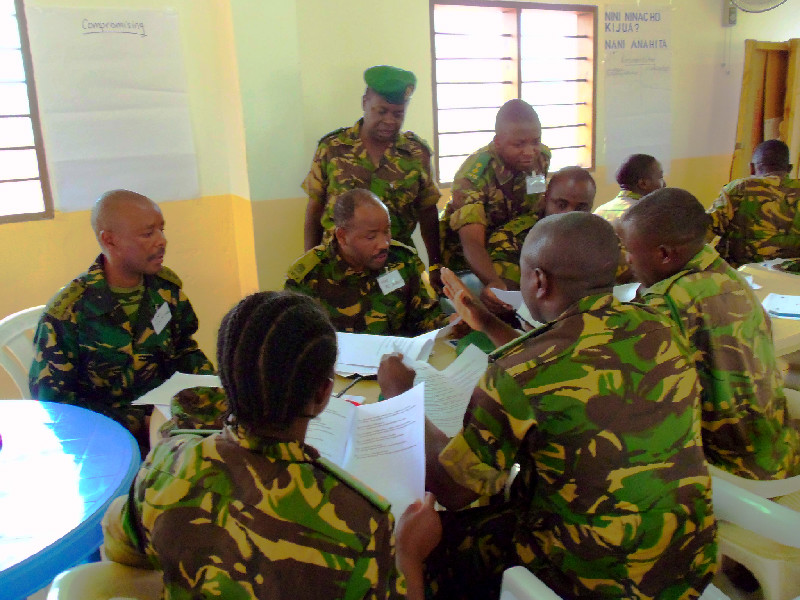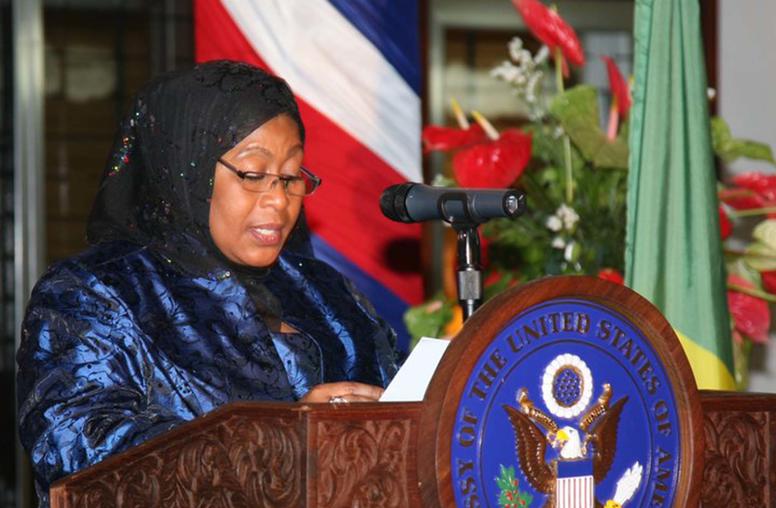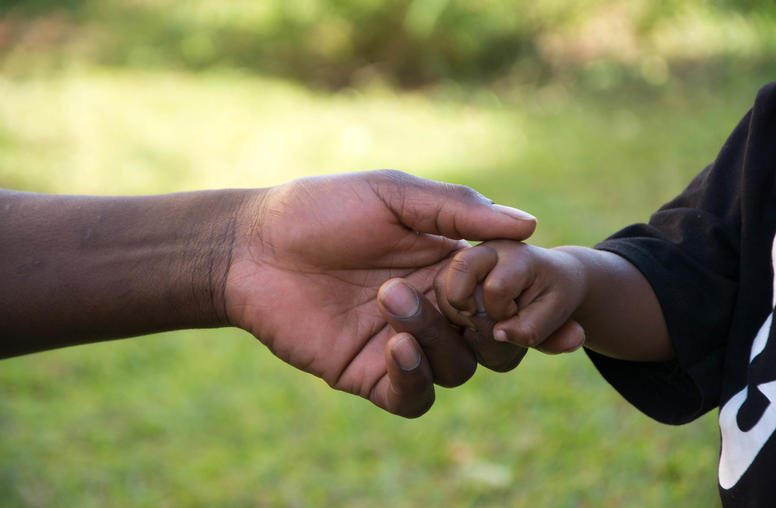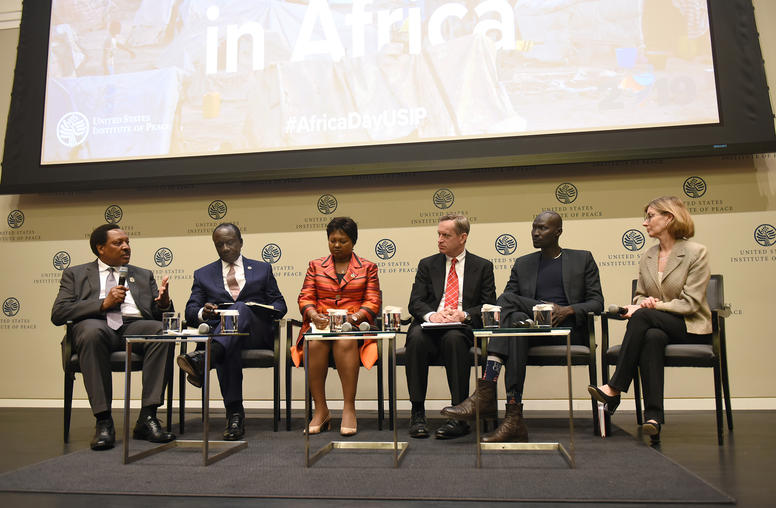In July, Academy Senior Program Officers Maria Jessop and Alison Milofsky traveled to Tanzania to lead a workshop for 30 members of the Tanzanian Armed Forces, as part of USIP’s ongoing partnership with the Department of State's African Contingency Operations and Training Assistance Program (ACOTA).
July 2010
In July, USIP's Academy for International Conflict Management and Peacebuilding Senior Program Officers Maria Jessop and Alison Milofsky traveled to Tanzania to lead a workshop for 30 members of the Tanzanian Armed Forces, as part of USIP’s ongoing partnership with the Department of State's African Contingency Operations and Training Assistance Program (ACOTA). They trained the Tanzanian officers, who will be deploying to the African Union/U.N. Hybrid operation in Darfur (UNAMID) in Sudan, on how to use negotiation and conflict analysis tools to meet the challenges of their peacekeeping mission.
 The program—the Academy’s first in Tanzania—was held at a military training base in Msata, located about a 3-1/2 hour drive from the capital Dar-es-Salam. Because the location is so remote, the USIP trainers were housed at a tent camp constructed for ACOTA trainers located some 45 minutes by car over dirt roads. The program content and structure was appreciated by all for its strong practicality and relevance to their upcoming mission in Darfur. The workshop was enriched by experiences of several senior Tanzanian officers, who had participated in previous peacekeeping missions and could share their own examples of how they used these skills.
The program—the Academy’s first in Tanzania—was held at a military training base in Msata, located about a 3-1/2 hour drive from the capital Dar-es-Salam. Because the location is so remote, the USIP trainers were housed at a tent camp constructed for ACOTA trainers located some 45 minutes by car over dirt roads. The program content and structure was appreciated by all for its strong practicality and relevance to their upcoming mission in Darfur. The workshop was enriched by experiences of several senior Tanzanian officers, who had participated in previous peacekeeping missions and could share their own examples of how they used these skills.
In partnership with ACOTA, USIP has now conducted training for Africa Peacekeepers in Rwanda, Senegal, Uganda, Burundi, and Tanzania.
Learn more about our Rwandan ACOTA training programs in 2008 and 2009.



